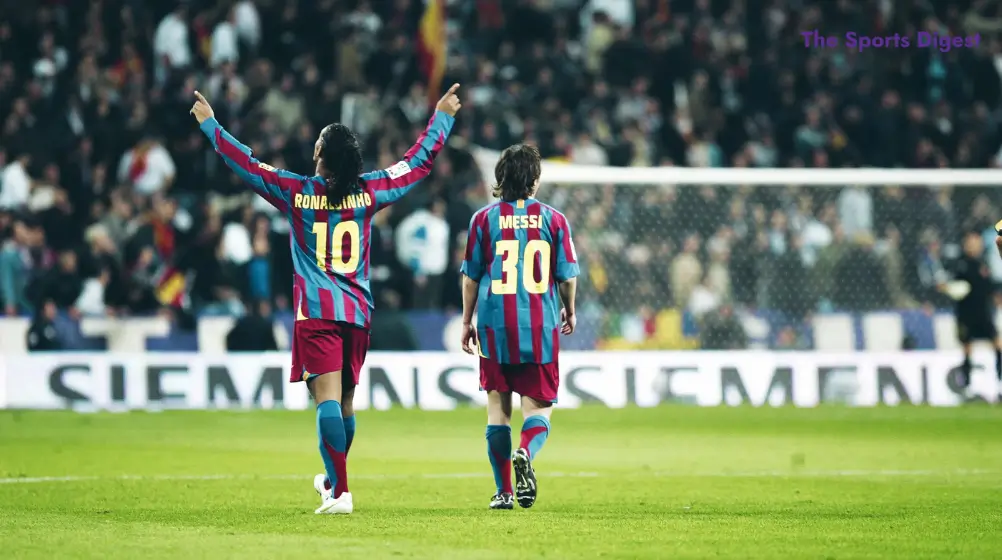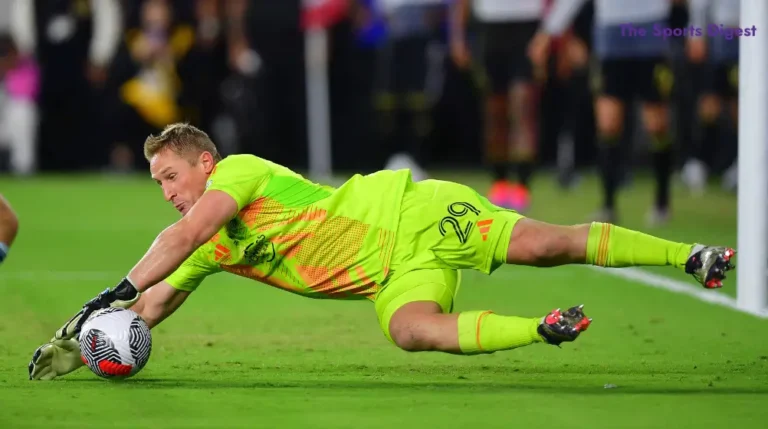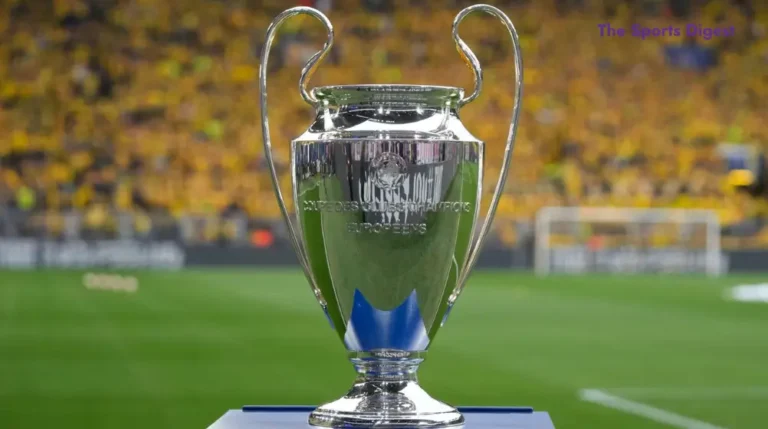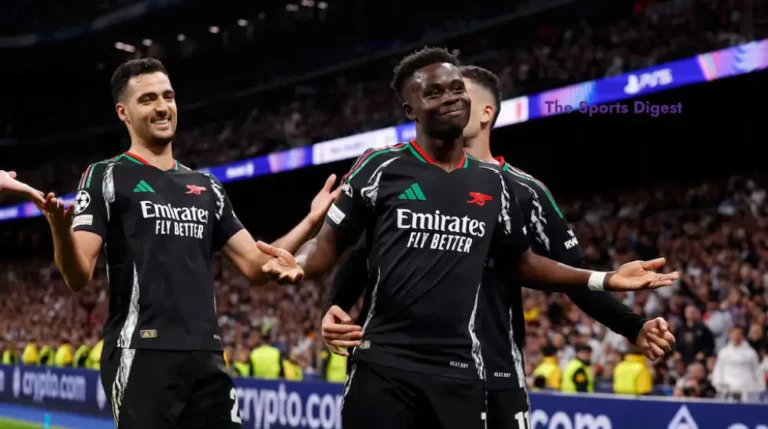Lionel Messi: When Sport Feels Like Faith
There’s a clip from 2015 that football fans have watched millions of times. In the Copa del Rey final against Athletic Bilbao, Lionel Messi receives the ball near the halfway line, surrounded by four defenders. What happens next defies explanation: he slaloms through them as if they’re training cones, maintains perfect balance despite multiple challenges, and finishes with a calm shot past the goalkeeper. The commentator’s voice cracks with emotion: “That’s not normal… that’s just not normal.”
And he was right. It wasn’t normal. It was Messi.
Table of Contents
The ‘Miracle’ on the Pitch
For over fifteen years, Lionel Messi has performed feats on football pitches that spectators and pundits alike have struggled to describe without invoking the divine. “He plays like God,” they say. “It’s miraculous,” they insist. His highlight reel contains hundreds of moments that, by conventional footballing standards, should be impossible: threading passes through defensive formations where no space exists, maintaining ball control while surrounded by multiple opponents, scoring from angles that defy geometry.
These aren’t mere hyperboles or casual exaggerations. When observers reach for religious language to describe Messi’s abilities, they’re expressing a genuine sense of witnessing something that transcends ordinary human capability. His former manager Pep Guardiola perhaps put it most succinctly: “Don’t write about him, don’t try to describe him. Just watch him.”
Transcendence Beyond Normality: Breaking Tactical Rules
To fully appreciate Messi’s otherworldliness, consider a pivotal 2017 match between Barcelona and Atlético Madrid. Barcelona manager Luis Enrique initially benched Lionel Messi, who was returning from injury. Without their talisman, Barcelona struggled against Atlético’s disciplined defensive structure.
The tactical battle that day represented football at its most chess-like. Barcelona employed their traditional 4-3-3 formation, emphasizing possession and patient build-up play. Atlético countered with their signature 4-4-2, creating a compact defensive block designed to frustrate Barcelona’s attackers and spring rapid counterattacks. In football’s mathematical language, Atlético sought to create numerical superiority in defensive zones while Barcelona tried to create overloads in attacking areas.
For 60 minutes, the tactical equation remained balanced. Then Lionel Messi entered the game.
What’s remarkable isn’t simply that Barcelona’s fortunes improved with Messi’s introduction—that would be expected when a team deploys its best player. What’s extraordinary is how Lionel Messi’s presence rendered the entire tactical framework of the game irrelevant. Where Barcelona had struggled to find space, Messi manufactured it. Where passing lanes had been closed, he discovered invisible corridors. The numerical advantages that Atlético had carefully constructed dissolved as one player—Messi—began operating on what seasoned observers described as “a different plane of existence.”
Catalyst for Change: The Lionel Messi Effect
Within minutes of Messi’s introduction against Atlético, the match’s complexion transformed completely. Barcelona’s formation, previously rigid and struggling, became fluid and threatening. Atlético’s defensive structure, which had held firm for an hour, suddenly appeared vulnerable as they adjusted to account for Messi’s movement.
The decisive goal came as Lionel Messi received the ball thirty yards from goal, surrounded by Atlético defenders. A standard tactical analysis would suggest this was a low-percentage situation—the attacking player had neither time nor space. Yet Messi’s genius transcended tactics, rigidity, and the norm. He accelerated past one defender, cut inside another, and finished with precision past the goalkeeper. The stadium erupted not merely in celebration but in something closer to reverence.
Not “Normal”: The Convergence of God and Man
The phrase “not normal” has followed Lionel Messi throughout his career. His former teammate Xavi noted that “Messi does things in training that I’ve never seen before. He’s not human.” Rival goalkeeper Gianluigi Buffon remarked after facing Messi, “He’s an alien that dedicates himself to playing with humans.”
These reactions stem not just from what Messi does but from his unlikely journey. Lionel Messi, born in Rosario, Argentina, was diagnosed with a growth hormone deficiency during his childhood. Standing just 4’2″ at age 11, his physical development was severely compromised. His family could not afford the $900 monthly treatment cost. Enter FC Barcelona, who recognized his extraordinary talent and offered to pay for his medical treatment if he would relocate to Spain.
This origin story—the small, physically challenged boy who becomes perhaps the greatest player ever—amplifies the sense of witnessing something miraculous when we watch Lionel Messi play. His triumph over a physical limitation, combined with his almost supernatural abilities on the pitch, creates a narrative that feels more mythological than biographical.
The “Religious Experience” of Watching Messi
Writer David Foster Wallace once described watching Roger Federer as a “religious experience.” Similar essays have been written about witnessing Pelé, Michael Jordan, and Muhammad Ali at their peaks. But I would argue that the religious quality of watching Lionel Messi stems from a unique combination: both awe at his otherworldly abilities and a profound sense of identification with him as a person.
Unlike many sporting icons whose physical presence immediately marks them as different—the towering frame of LeBron James or the sculpted physique of Cristiano Ronaldo—Messi appears ordinary at first glance. Standing 5’7″ with a quiet demeanor, he seems like someone you might pass on the street without notice. This apparent normality makes his transcendent performances all the more extraordinary.
When we watch Messi perform the impossible, part of our emotional response comes from the tantalizing suggestion that perhaps the divine isn’t so distant after all. If someone who looks like an average person can do these things, perhaps greatness isn’t as unreachable as we thought. Each Messi miracle simultaneously reminds us of human limitation and suggests its transcendence.
Unique “Superhuman” Relatability
Make no mistake: Messi is superhuman. His balance, spatial awareness, acceleration, and ball control exceed normal human capability by orders of magnitude. Yet his persona—quiet, family-oriented, somewhat shy—creates a bridge between the divine and the human that few other sporting icons have managed.
This combination of transcendent skill and relatable persona creates what sociologists might call a “collective effervescence” when Messi performs—a shared emotional experience that binds spectators together in something that resembles religious communion. We’re not just watching an athlete; we’re participating in a shared acknowledgment of possibility beyond normal boundaries.
Messi’s journey from a growth-hormone deficient child to global icon reinforces this narrative. His triumph over physical limitation suggests that perhaps our own limitations—whatever they may be—aren’t as definitive as we fear. In Messi’s most magical moments, we glimpse a world where the impossible becomes possible, where human potential exceeds the boundaries we’ve imagined for it.
Perhaps this is why the end of Messi’s career looms as such a profound loss for football fans worldwide. We’re not just losing a great player; we’re losing a rare figure who bridges the divine and the human, who shows us both what we cannot do and what might be possible. In a world increasingly defined by division and limitation, Messi has offered weekly evidence that transcendence remains possible.
Ultimately, the “religious experience” of watching Lionel Messi isn’t just about witnessing sublime skill—it’s about the hope that the extraordinary might, somehow, be within reach. Even if we know we can never bend a football like Messi, his example suggests that each of us might transcend our own limitations in ways we haven’t yet imagined.
Have you ever read an article like this?
There are no reviews yet. Be the first one to write one.






